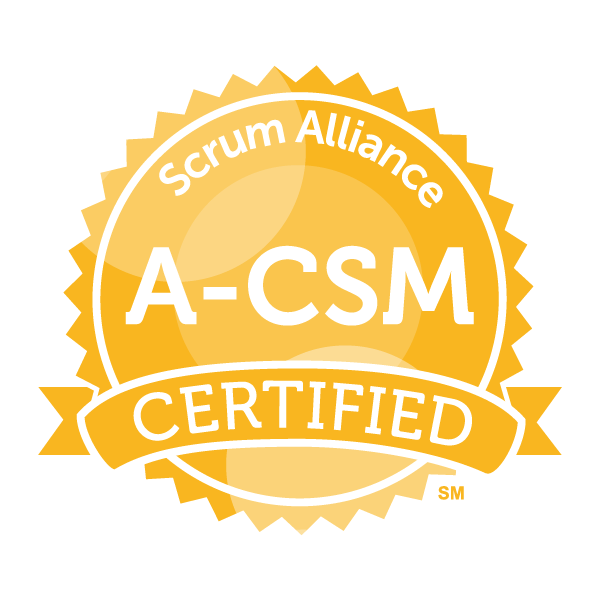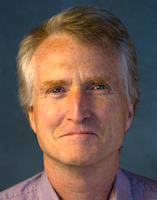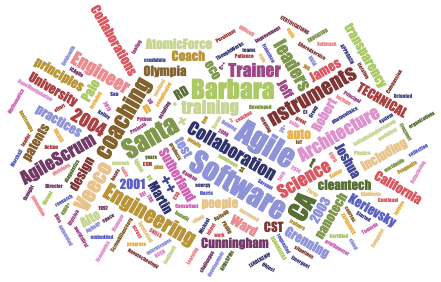

This A-CSM course adds advanced insights to your CSM base. The couse directly meets the required learning objectives from the Scrum Alliance. Plus, it adds multiple perspectives, principles, & practices per topic, to empower you with more insight & options for impact.
20+ Agile years of humbling wins and hard-won lessons from startups to the world's largest organizations, plus venture capital and private equity. I'm here to help you grow your Agile influence, impact, & opportunities, and your organization's culture for ongoing innovation. I emphasize key principles because they are the most widely applicable and last the longest. I'm pragmatic vs dogmatic. I have extra experience in Agile engineering practices (XP), plus Lean Startup, & Design Thinking. HW/SW systems. More ... 650-485-1203
"...joyful...", "... engaged, valuable, and actionable...", "...wonderful experience...", "...awesome course...", "...expert and deep caring...", ".. one of the best trainers I've encountered...", "...interactive & inclusive...", "...I got the job!..."

You may take the A-CSM course at any time after completing your CSM certification. You must have at least 12 months of Scrum Master experience logged into your Scrum Alliance profile to receive your A-CSM certification itself. For preperation, we recommend that you read the latest Scrum Guide, by the creators of Scrum. It's a brief 13 pages. It will serve you well in the class & beyond.
This class will help all roles touched by iterative team work in general and Scrum/Agile principles & practices in particular. If you've felt there is more to learn about Scrum, Agile, teams, and coaching, this course will help. If you've felt there are subtleties to integrate and that practice helps, this class will help you. If you want to grow your influence and opportunities, this class can give you an edge. If you're drawn to coaching, this class will help you progress on your coaching journey.

If you decide not to attend/finish the class for any reason, let me know and I'll help you find an alternative class, or give you a full refund. You have up to the end of the 2nd day to tell me. If we need to cancel a class, we'll give you the choice of a full refund or another class.
First off, all A-CSM courses must meet the same learning objectives required by the Scrum Alliance. The learning objectives are based largely on the latest Scrum Guide. The instructors have lots of latitude about how the learning objectives are met. I add multiple perspectives, principles, & practices per topic. This reinforces the deeper principles & patterns, giving you more options in more situations.
Many courses present Scrum as a very different, and new way, to do things, as if "waterfall" had previously been used for everything. I help you connect to examples in your life and work where you may be already using the Agile ideas naturally. This revelation may help you tell a compelling history of your Agile thinking. We'll also discuss some examples of Agile thinking and building long before and before Scrum went public in 1995 and the Agile Manifesto went public in 2001
While many courses give you one main example way to apply a principle or practice. I strive to give you multiple ways so that you can see the deeper pattern and adapt to more diverse situations and constraints. We directly hit each topic from multiple angles including the official word, what we've seen in the wild, the deeper "why" it matters, alternative views, trade-offs, balance, and how you can recognize if something is off, and ways to solve it.
It is not a lecture class. While we will do some simulations/games and watch some relevant videos, the class is mainly a collaborative discussion. (somewhat Socratic style or coaching style) The format of this class is best for people who want to engage in an exploration & discussion of these topics, both for discovery and as practice for the discussions you'll later have in your real teams & organizations, and interviews.


First off, all the instructors I've met are good. The A-CSM instructors need to be Scrum Alliance approved Certified Scrum Trainers (CSTs). There are only approx 250 in the world. Most are from a project management background. I have done lots of project management, and lots of engineering, R&D, and entrepreneurial adventures. I've helped people from the C code to the C suite, plus helping venture capital and private equity firms.
After being certified to teach the CSM & CSPO, I gradually attended 12+ more CSM, CSPO, & CSD courses from top Scrum teachers including four from the creator of Scrum Jeff Sutherland, plus Jeff McKenna, Roger Brown, Bryan Stallings, Rob Myers, Paul Moore, and more. You get the benefit of my diverse portfolio of perspectives, practices, & solutions.
As your instructor, I focus on your Journey, from where you are to where you want to go. I look forward to meeting you and helping you move forward in the direction of your choice.
My personal passions include running, growing food, writing songs, and using Agile ideas for environmental sustainability innovation.
As time permits, and the class chooses, we can discuss: Agile Leadership, Scaling, Distributed teams, Engineering/Technical practices, Testing Pyramid, ...
The best Scrum software teams, typically make full use of Agile engineering practices from Extreme Programming. I'll point out the practices, and explain why & how they matter.
This course often includes some Lean Startup principles, how they complement Scrum, and how the full Scrum team can participate in product experiments and validation, in organizations of all sizes.
Scrum is a lightweight framework for developing products & services in the context of change & uncertainty. It is very popular in innovative software organizations. But it can be applied to any industry. See the Scrum Guide for a 13-page summary by the creators of Scrum. Then return here to take the course. :-)
While some people take the course just for learning and don't take the exam for the certification. But many people do want the certification. Here are some reasons why: